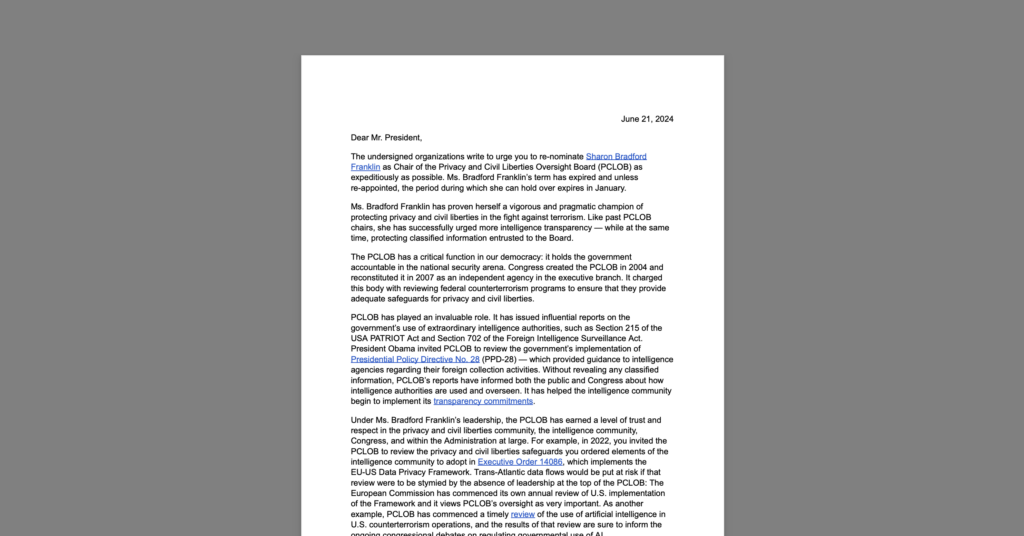Government Surveillance, Reproductive Rights
Report – Two Years After Dobbs: An Analysis of State Laws to Protect Reproductive Healthcare Information from Interstate Investigations and Prosecutions

Also authored by CDT Interns Irene Kim and Divya Vatsa
Following the Supreme Court’s June 2022 decision in Dobbs to overturn Roe v. Wade, some states have banned or restricted abortion access, while others have moved to protect against criminal prosecutions stemming from such bans.
This intense split has created questions about how patients and providers located in one state will be impacted by the laws of another, especially when law enforcement seeks to compel disclosure of sensitive electronic information, such as private online messages, related to abortion care. Over the past two years, numerous state legislatures have enacted legislation, and state governors have issued executive orders (hereinafter collectively referred to as “shield laws”) to protect providers and recipients of reproductive health services from out-of-state investigations. In many cases, these laws also shield information about gender-affirming care in the wake of growing anti-trans state bills across the country.
The breadth of these shield laws varies state by state. Most state shield laws bar state government officials — including law enforcement — and state courts from assisting out-of-state investigations and prosecutions of protected healthcare activities. For example, a state judge could be prohibited from domesticating an out-of-state subpoena seeking location data showing that an individual visited an abortion clinic, or local police could be prohibited from aiding extradition of a doctor to a state where they’ve been criminally charged with performing unlawful abortions. Other state shield laws go further and bar private companies — such as providers of communication services and companies involved in the delivery of health care — from disclosing protected health data, even when they receive warrants, court orders, and subpoenas demanding such disclosure.
This document examines the state measures that have been implemented regarding reproductive health care information, reviewing all 22 states that the Guttmacher Institute (a leading reproductive health research organization) currently lists as providing at least some protections for abortion. This work builds on a Field Guide that the Tech Accountability and Competition Project at Yale Law School developed for CDT to help state legislators draft shield laws.


